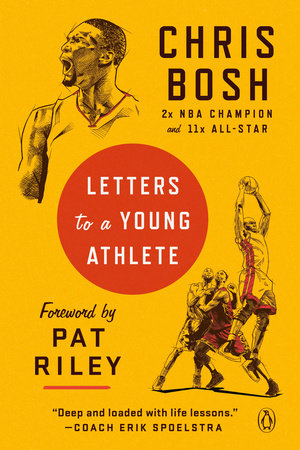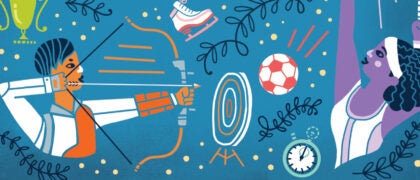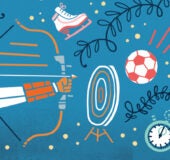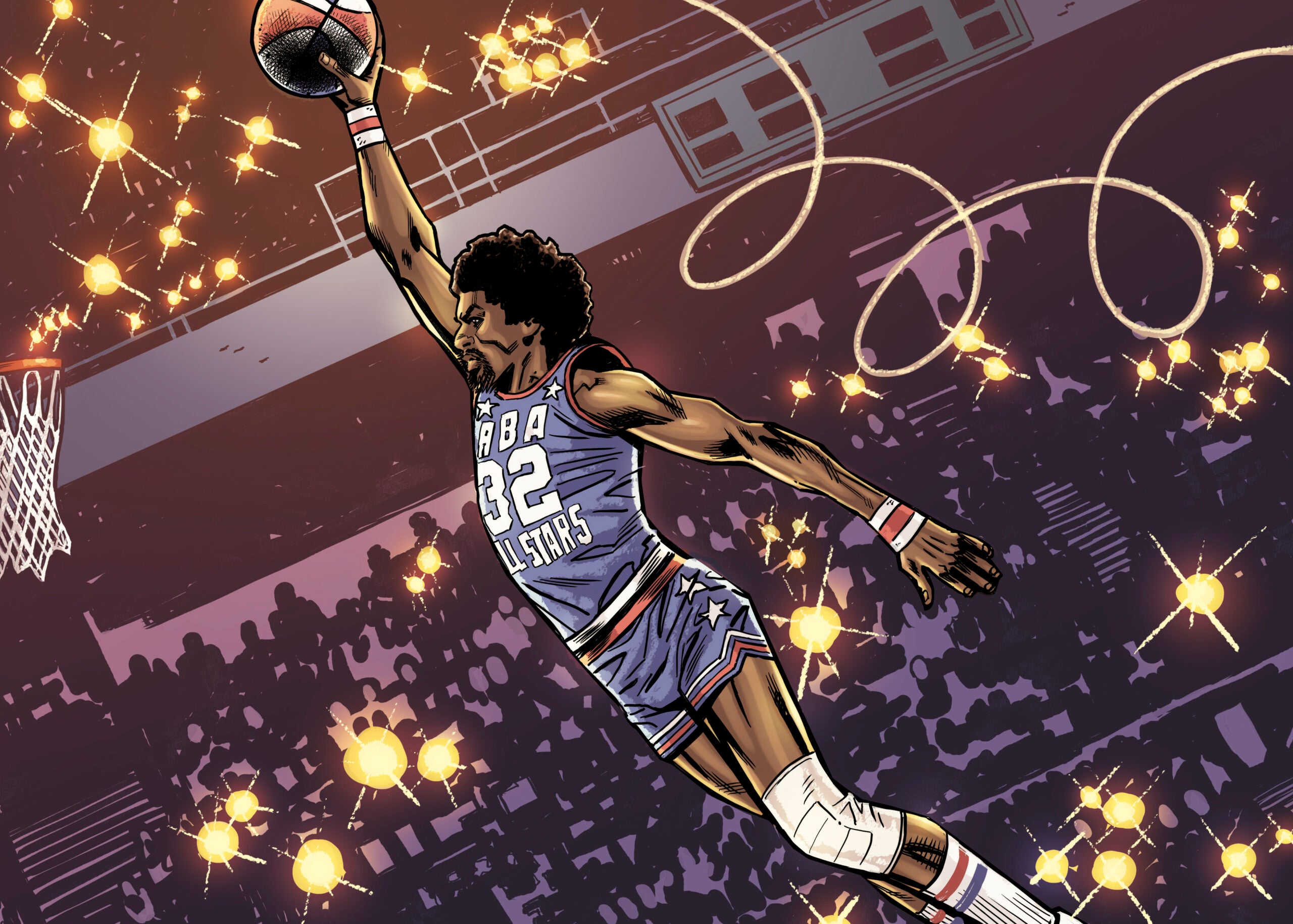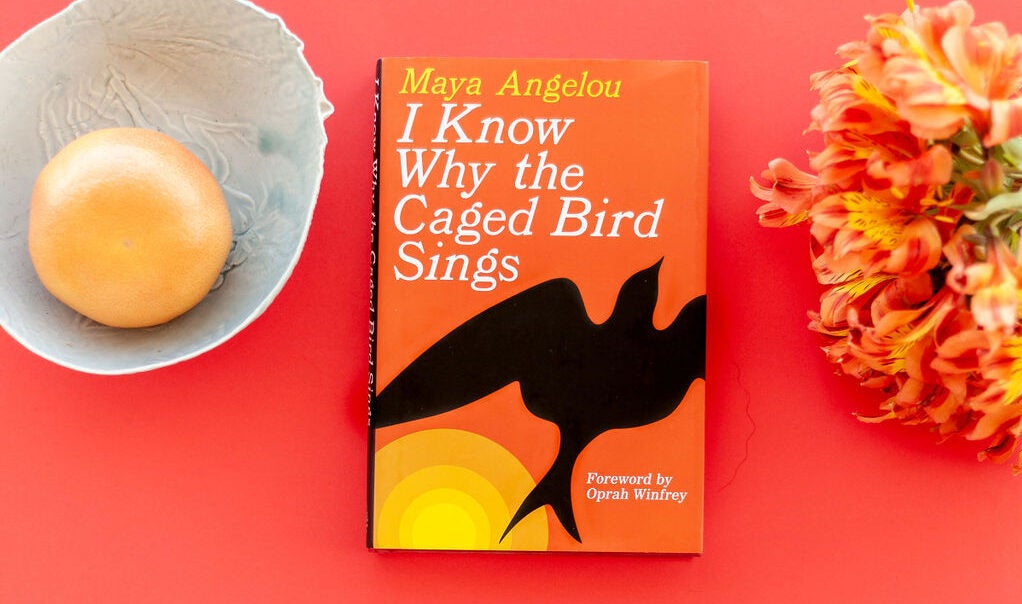Introduction
The last thing you probably want is another voice in your head.
I get it.
There’s a lot coming at you these days. Whether you’re a once-in-a-lifetime talent just arriving in the pros, or an ordinary kid in an after-school league; whether you’re playing basketball or lacrosse, throwing a shotput or suiting up as a tight end—or whether you’re trying to excel in the classroom or start a career—you’ve got a lot of people coming at you.
Coaches.
Crushes.
Teammates.
Teachers.
Parents.
Peers.
The crowd.
There can also be recruiters, reporters, haters, and on and on. And then there’s the toughest voice of all: the voice inside your own head. Nothing can intimidate you like that voice. Nothing can mislead you, shame you, puff you up, lead you astray, or keep you down quite like the running monologue between your own two ears.
But wherever they come from, all of those voices have some-thing in common. Everybody thinks they know. They all want to tell you something—want to cop a few seconds to get in your ear. Or maybe they’re firmer than that:
Sit your ass down, kid. You better listen to me. So here I am, another voice in your ear. What makes me any different?
Because I know. I don’t just think I know. I’ve been there.
And where is “there”? It’s where you are right now—high school, college, rookie—and where you want to go. I’ve been the kid in the driveway practicing buzzer-beaters and the guy in front of sold-out crowds hitting them, and neither all that long ago.
I remember what it was like to love the game. To break some kid’s ankles on a crossover or drain a deep shot and realize,
Maybe I’m not like them. Maybe I’ve been given something special. I remember what it was like to see that talent reflected back in the eyes of coaches and teammates, to realize that I had a future in basketball. I remember that hunger to make it, to get out of my hometown and
make it. I remember being barraged by all the same people barraging you—about homework, about planning for the future, about sportsmanship, about being a team leader, about not hanging out with the wrong crowd, about trying hard, about the way you dress or the music you listen to, about everything that young athletes have always been hassled about.
I started playing baseball and basketball early. I was always tall. From maybe fourth grade on, basketball was more or less my life. I was Texas high school player of the year and an All-American before I was recruited by multiple colleges.
I’ve been there. I’ve been somewhere I imagine you want to go, even if it’s the most unlikely of fantasies. I’ve heard thousands of people scream my name at once. I’ve been mobbed in the streets of foreign countries. I’ve run out of the tunnel onto an NBA court for a Game 7. I’ve
won Game 7s. I’ve seen the confetti fall from the rafters. I played long enough to see my own jersey get raised up there, where it will hang forever.
I also avoided the trouble that a lot of athletes get into. I learned a lot about the game and about life. I know about heart-break and pain, too. I made it to the pros and climbed to the very top of the profession I had worked my entire life to be a part of . . . only to suddenly lose it all when the thing that got me there—my body—betrayed me. A surprise blood clot in 2016 meant I would never again lace up my sneakers and play basket-ball in the NBA.
I was Bo Jackson, undone by a hip injury. I was Dajuan Wagner, forced to retire early because of Crohn’s disease. I was Jay Williams, severely injured in a motorcycle crash before his rookie year in the NBA. I was a million athletes you never heard of, because they were cut down before their prime. I was one of those athletes whose career didn’t end soaked in champagne, celebrating a championship, or even in tears on the court. Instead, mine ended in a doctor’s office in the middle of the afternoon. My playing days ended with a whimper, the slow drip of test results, doctors, and lawyers arguing over clauses in contracts over email.
As I write this, a part of me wishes I was still out there in the mix, chasing rings, but my dad always told me that when God closes a door, He opens a window. Our conversation here is a window for me. A window to explore the game from another angle and to give something back to the game that has given so much to me.
Believe me, I get that you probably don’t want to listen to another person right now, but if you can make room for one more voice—for my voice—I think I can help you get where you want to go.
I’ve had lots of coaches. I’ve been lucky to play for some of the best—Erik Spoelstra, Coach K, Pat Riley, Mike D’Antoni. I’ve had coaches pull me aside and whisper exactly what I needed to hear at pivotal moments in a game, and in my life. I’ve had some pretty awful coaches in my life, too—the ones who don’t have any motivational techniques beyond “yell louder” and “get more in their face.” I’ve been screamed at by a lot of people. I tried to think about it the other day—the average attendance for an NBA game is about 18,000, and I played in 982 games in my NBA career. Add it all up, and that means I’ve had something like
17 million fans screaming at me
in person—not to mention the millions more screaming at me through their TV.
The point is, I know about noise, and that’s not what I’m going to throw at you.
There’s too much at stake.
You see, you’re at a crossroads in your life. You have two paths ahead of you, and you can only take one. I want to make sure you take the right one, the one that helps you get the most out of yourself, out of your potential, out of this game—whatever that game is for you. Whether you’re staying at the gym hours after practice to work on your shot or cramming for an AP exam, I can help you get the most out of that.
Looking back, what really gives me vertigo is to think of those moments when I easily could have listened to the wrong voice. Where at fifteen, sixteen, seventeen, even twenty-seven, I could’ve messed things up forever with one wrong step. One moment of indulging the devil on my shoulder, and my life, my career, could have gone in a very different direction. My entire future—years in the pros, an Olympic gold medal, two championship rings—suddenly erased. And worse, like so many talented kids out there, I might never have even known what I had unwritten. Would I have my kids? Have my creativity? Would I even be here, alive? I was lucky in that way. I want you to be lucky, too.
One of the lucky moments for me was a conversation I still remember like yesterday. I was in high school, at the gym—I was always at the gym, I loved it—and my coach Thomas Hill asked me the kind of question most young kids never get, but almost always need.
Coach had been walking me through a drill. Maybe it was a low-post drill designed to teach the footwork for the jump hook, one of the most simple and devastating back-to-the-basket moves in all of basketball. They say you play like you practice, and for a low-post move like the jump hook to work, you’ve really got to commit, you’ve got to establish your position, get your footwork down, and get maximum arm extension to hopefully get you an easy two. Or maybe we were working on inbounding the ball and he was right up in my face, trying to flood me with pressure. Anyway, I must have been having a good workout because sud-denly Coach Hill stopped everything, looked me in the eyes, and said, “What do you want to do with this, Chris?”
What do I want to do with this? Man, I thought,
I am doing this. Don’t you see me playing?I stammered and stumbled a bit, thinking he wanted to hear about my goals for that very drill or maybe my goals for basketball. I explained I was maybe hoping to win a state championship or get a college scholarship, thinking that, of course, that’s what every coach wants to hear. But he was thinking much bigger. He was thinking beyond the game.
Nah, he said,
I’m talking more than that. He wanted me to think bigger, too. What did I want to do with my life? Who did I want to be? How could basketball help me get there? Where could my talents take me and where could I go if I really sold that first step and put everything I had into driving toward my goals?
No matter what kind of talent you’ve been blessed with, you still have to answer the same question: What do you want to do with this? Where are you going, and how can you use what you’ve been given to get there?
That conversation changed my life, and a big reason I’m writing this book is that I want to ask the same question of you. However you answer it, answer it honestly—and I’ll try to give you some honest advice about how I think you can get there. I don’t want this to be just another noise in your ear—I want it to be one of the voices that matters. I want it to be like the conversations that helped me harness my talent, that helped me come to peace with the early end to my career. I want it to be like the conversations that happen between coaches and kids in locker rooms and in gyms, on buses to road games, and on the bench in the fourth quarter. The great coach John Wooden once said, “What you are as a person is far more important than what you are as a basketball player.” And I’ve been fortunate to have been surrounded by countless coaches, mentors, and teammates who lived by those words.
You’ll notice this book is called
Letters to a Young Athlete. I’m writing it to you as a kind of letter. It’s modeled on some of my favorite books, like
Letters to a Young Poet and
Letters to a Young Jazz Musician. Those might seem like strange books for a basketball player to be reading, but I love learning—from anyone who can teach me. I hope I can share some of that love with you. I also hope I can pass along some of the timeless wisdom I’ve picked up along the way. One of the things the poet Rilke taught me is that part of being wise is accepting you don’t have all of the answers right now—and that’s OK. It’s OK to be full of questions. “Try to love the questions themselves as if they were locked rooms or books written in a very foreign language,” he wrote in
Letters to a Young Poet. “Don’t search for the answers, which could not be given to you now, because you would not be able to live them. And the point is, to live everything. Live the questions now. Perhaps then, someday far in the future, you will gradually, without even noticing it, live your way into the answer.”
You don’t have to know right now what you are going to do with the talent you’ve been given. You don’t need to know where you’re going to end up, or where you’re going to find the strength you need along the way. Live, keep your love of the game close to you, and you can live yourself into the answers.
There isn’t a roadmap to get you there, but Rilke’s advice, which I’ve tried to take to heart, is that you have to
live everything. What that means to me, as an athlete, is that your game—whatever it is—has to be more than a means to an end. Sure, you run the drills in practice because you want to win the games. You want to win the games because you want all of the good things that come with winning—trophies, pride, money, whatever. But if you don’t stop to
live what you’re doing—if you don’t make space to experience the joy of the game—you’re missing something. You’re missing the
biggest thing.
And here’s what’s really special: You don’t have to be a pro to experience those moments. There are plenty of pros who play the game mechanically and joylessly, and right now there’s some kid shooting hoops at the local Y who could teach us all something about what it means to find joy in the game. Whatever our game of choice, whatever kind of talent we’re blessed with, wherever we’re hoping the game will take us, we’re all the same when it comes to this: We all have that capacity to stop and experience the joy of what we’re doing. As you’ll see in these letters, that’s gotten me through a lot of hard times. My wish for you is that when you look back on your playing days, you’ll be able to say the same.
Copyright © 2021 by Chris Bosh. All rights reserved. No part of this excerpt may be reproduced or reprinted without permission in writing from the publisher.





